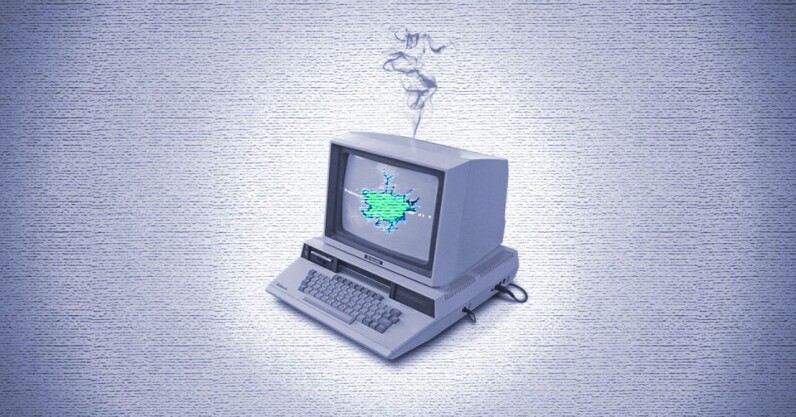Expertise-related stress, overload, and nervousness are common problems in today’s workplace, doubtlessly resulting in higher burnout and poorer health. Many of those points are more likely to have elevated since distant working grew to become rather more widespread following the pandemic.
In 2022, together with colleagues on the College of Nottingham, I conducted a review of the educational literature on the downsides of digital working. We checked out practically 200 research from over the previous decade, which revealed in depth proof of the damaging well being impacts of technostress and the associated “darkish facet of digital office” results.
Constructing on that analysis, our subsequent examine, printed in 2024, investigated whether or not mindfulness and digital confidence — the flexibility to use present digital expertise to new gadgets, apps, and platforms — may assist cut back these damaging results.
We found that being extra assured and aware when utilizing expertise may assist defend the well being of digital staff.
Mindfulness is a technique to develop a nonjudgmental consciousness of 1’s emotions, ideas, and environment within the current second.
It may assist some individuals keep away from damaging habits and responses by studying to watch their ideas and feelings and tune in to the breath and physique as an anchor. Changing into conscious of recurring reactions on this method may also help us reply in a calmer, simpler method.
Our newest examine provides to proof collected by way of many decades of office mindfulness analysis, which has demonstrated its potential to scale back stress and nervousness amongst staff, in addition to selling higher psychological well being and enhancing work engagement.
Whereas our analysis didn’t examine particular mindfulness strategies, our interview members talked about ways in which being aware helped them cut back stress within the digital office.
This could possibly be so simple as pausing for a couple of deep breaths or stepping away from expertise for a brief interval. Contributors mentioned that checking in with their psychological, emotional, and bodily state whereas working digitally was additionally one thing that actually helped.
These with increased ranges of mindfulness tended to be much less overwhelmed by expertise. They talked about avoiding multitasking on-line — for instance, studying emails whereas on a video name — in addition to establishing clear boundaries round its use, corresponding to solely utilizing expertise at sure occasions of the day.
It’s value noting that some staff had been uneasy about taking time to disconnect, noting that they feared being seen as slacking or falling behind.
General, staff who had been extra assured with expertise skilled much less nervousness. And those that had been extra aware appeared higher shielded from the damaging facets of digital working.
Our outcomes counsel that though digital mindfulness and confidence are each vital for worker wellbeing, finally, mindfulness is simpler than confidence with expertise in defending in opposition to technostress.
Change perceptions to enhance wellbeing
In our evaluation we discover the thought, primarily based on earlier research, that mindfulness may also help cut back nervousness by altering staff’ perceptions of digital stressors.
For instance, researchers from the University of Turin in 2019 discovered that increased mindfulness amongst lecturers was related to a extra constructive workload stress appraisal and decrease charges of subsequent burnout.
In our examine, we discovered that digital staff who had been extra mindfully and digitally assured appeared to have a larger sense of company when working digitally. They had been additionally higher outfitted to vary their digital habits for the higher.
These modifications concerned setting boundaries by implementing guidelines for a way and when to have interaction within the digital office. For instance, turning off notifications, batching emails, or shutting down gadgets on the finish of the working day.
Some members additionally used quick aware practices to manage their engagement with expertise and maintain bodily and psychological well being whereas working digitally. Helpful actions included taking a brief break from expertise, going for a stroll, or making a cup of tea.
Reflection is vital to wholesome digital habits
To assist staff thrive in the course of the ongoing digital transformation of the office, organisations ought to contemplate methods to help workers with digital expertise and aware practices. In any other case, they danger staff struggling additional damaging results.
Conducting this analysis made our crew take into consideration our personal digital practices and determine areas for change. For example, setting clearer boundaries round studying and responding to emails exterior of labor hours and taking extra pauses whereas working digitally.
There are alternatives for all of us to develop our personal expertise in these areas, for instance, by participating with coaching or self-learning to boost our digital competencies for work and study some primary mindfulness practices.
Reflecting on what’s and isn’t working in your digital work day is usually a good spot to start out in fostering wholesome digital work habits.![]()
![]()
Elizabeth Marsh, PhD Candidate, worker technostress and the potential of mindfulness, College of Psychology, University of Nottingham
This text is republished from The Conversation underneath a Artistic Commons license. Learn the original article.

Discover more from TechPros: Innovate, Learn & Connect
Subscribe to get the latest posts sent to your email.
